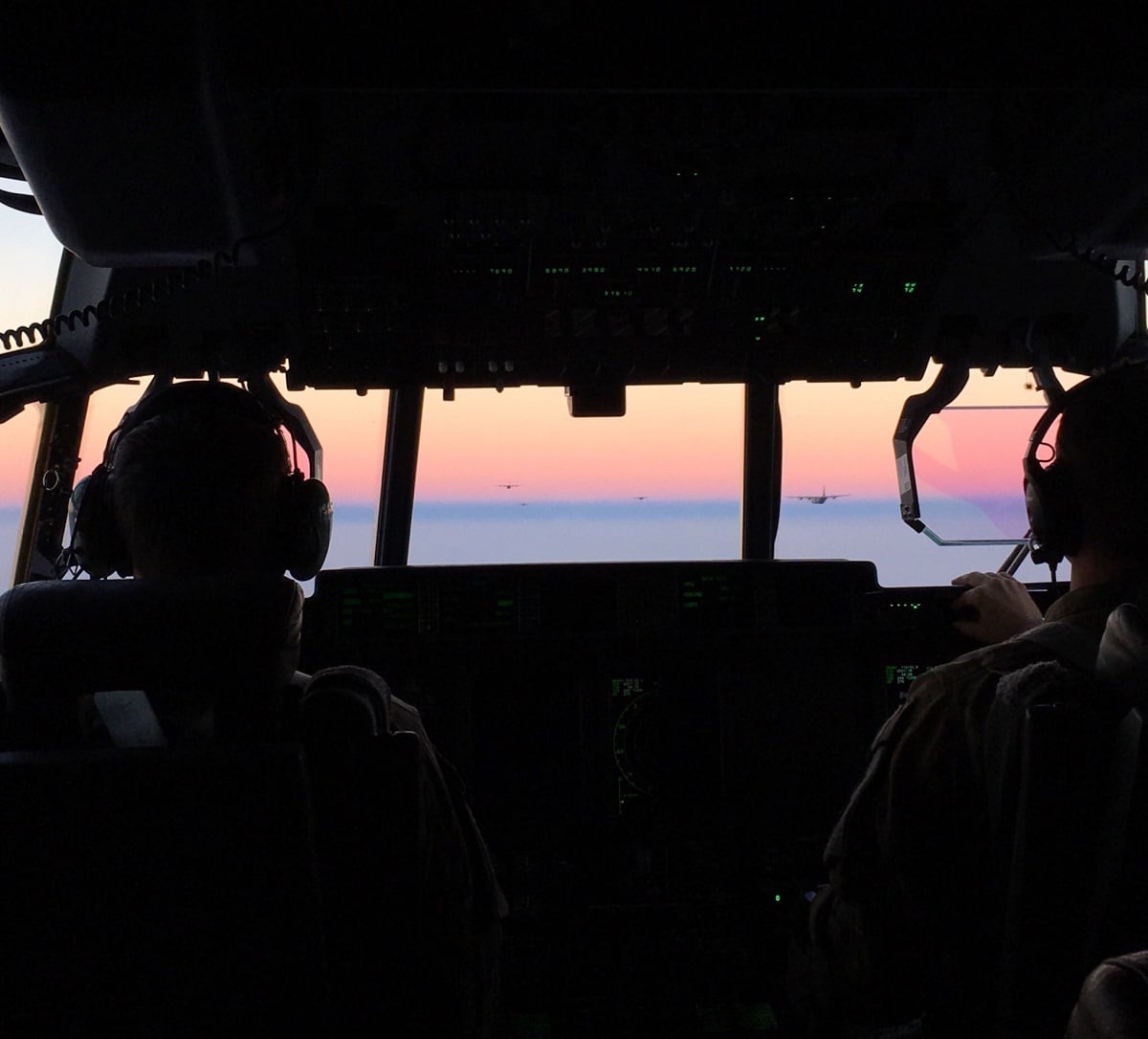Keeping experienced pilots flying for the Air Force has become a major challenge in recent years, but through ongoing efforts in Air Mobility Command and in the Air Force as a whole, the service hopes to reverse that trend.
The Air Force historically strives to retain 65 percent of its pilots at the end of their flight training service commitment of 10 years. As recently as two years ago, the primary means of retaining pilots was an Aviation Retention Bonus. Despite this program, which can pay as much as $420,000 over several years, the rate at which pilots take the bonus has continued to decline. Low ‘take rates’ for the past several years have led to a current shortfall of about 2,000 pilots across the Air Force’s mobility and fighter pilot communities. As commercial airlines continue hiring at a high rate, the pilot shortage could grow even more severe if Air Force pilots continue to choose the airline lifestyle at the current rate.
Air Force leadership is laser-focused on the retention challenge. Last May, when the commander of Air Mobility Command, Gen. Carlton Everhart II, appointed me to lead his Aviation Retention Task Force, we took inputs from nearly 800 airmen. The inputs clearly indicated a need to improve the quality of life and quality of service for our airmen and their families. It was clear that if we didn’t address these issues, we would continue to lose airmen in increasing numbers over the coming years. Within two months of getting this feedback, Gen. Everhart approved 12 initiatives designed to put more emphasis on flying as a career and to reduce the deployment burden on airmen and families.
In September 2017, I attended an Aircrew Summit hosted by Air Force Chief of Staff Gen. David Goldfein. In this summit, the chief approved even more initiatives that would provide airmen (fliers and non-fliers alike) with a better quality of life and service. Gen. Goldfein endorsed an Aviator Technical Track beta test program proposed by the AMC commander – paving the way for a select group of air mobility airmen to concentrate on flying duties. Should this AMC beta test prove successful, it will be a foundational element of the chief of staff’s efforts to revitalize the squadrons. These aviator technical track program pioneers will bolster core flying competencies and provide experienced mentors within the units to younger aviators. The chief of staff didn’t stop there, however. He also approved an initiative to allow the reduction of 365-day deployments. Gen. Everhart subsequently slashed the number in AMC by 55 percent — from 47 to 26. Gen. Goldfein also said that he wanted to reduce the number of airmen on deployed staffs.
RELATED

Just a month later, in October 2017, I deployed as the director of mobility forces for U.S. Air Forces Central Command. By the time I arrived, I found Lt. Gen. Jeffrey Harrigian, the AFCENT commander, implementing the deployed staff reductions requested by Gen. Goldfein. I also saw him further reduce the burden on airmen and their families by repositioning more than 50 deployed airmen to Shaw Air Force Base, South Carolina.

Highly trained and skilled pilots and other essential airmen such as maintainers, are the most critical part of the world’s greatest air and space force. I’m proud that in just a little over one year I have seen the problem of airman retention progress from a challenge, to feedback, to implementation of measures that are improving quality of life and quality of service. This progress is just the beginning. Secretary of the Air Force Heather Wilson and Gen. Goldfein continue to take steps to improve the lives of airmen and families so they’re happier and feel encouraged to stay in the Air Force longer.
Maj. Gen. Samuel C. “Bo” Mahaney is deputy director of Air Mobility Command operations, strategic deterrence and nuclear integration at Scott Air Force Base, Illinois. He also serves as chairman of the Air Mobility Command Aviation Retention Task Force. He has held numerous commands at the center, wing and group level. He is a former Harvard national security fellow and Georgetown legislative fellow. His views are his own and do not necessarily reflect those of the United States Air Force, the Department of Defense or Military Times and its staff.




